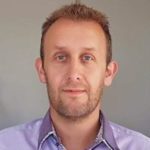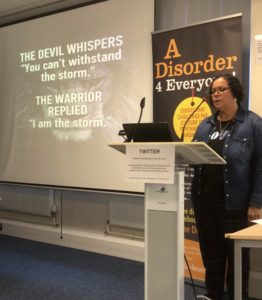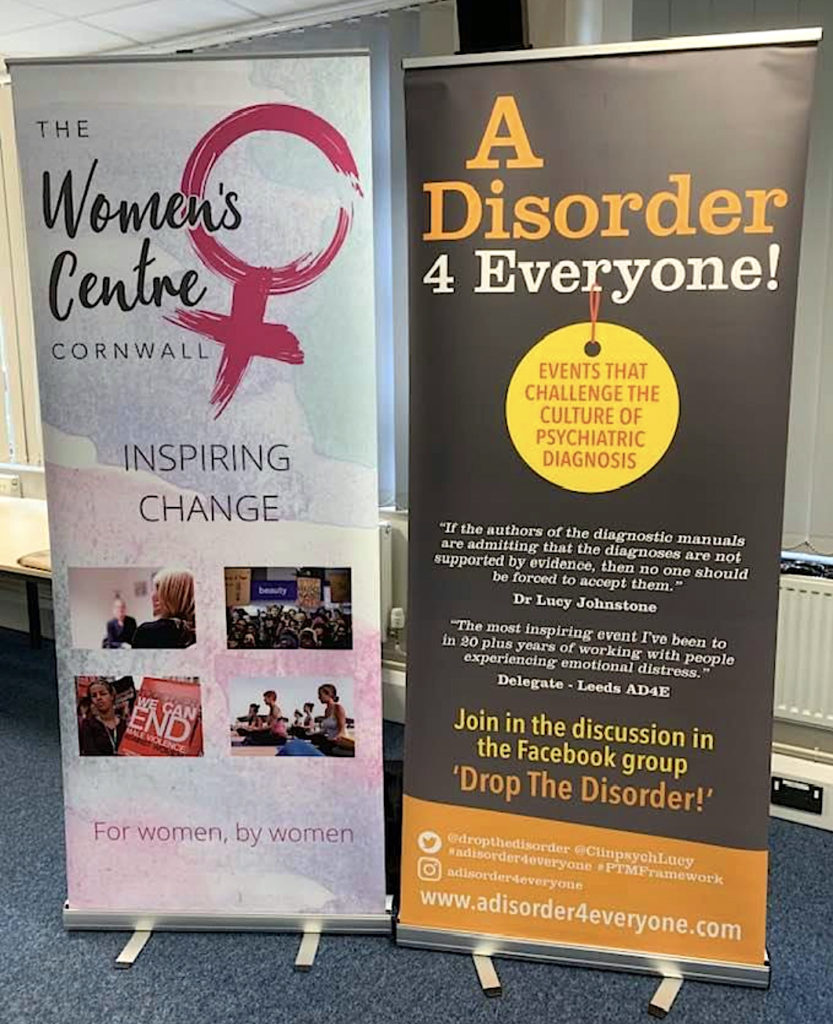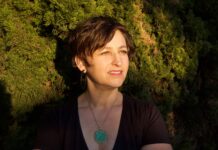Matt Ball writes about a recent ‘A Disorder for Everyone’ event held in Cornwall on February 13, 2020.
 Having travelled from Australia to be part of the ‘A Disorder for Everyone’ (AD4E) event in Cornwall – produced in association with the Woman’s Centre Cornwall – I was aware of my expectation and hope for something different, something powerful and something that offers tangible potential for change.
Having travelled from Australia to be part of the ‘A Disorder for Everyone’ (AD4E) event in Cornwall – produced in association with the Woman’s Centre Cornwall – I was aware of my expectation and hope for something different, something powerful and something that offers tangible potential for change.
With numerous presentations by people who understand and experience the marginalisation, oppression, trauma and adversity that is at the origin of human distress, the imperative to drop the labels was striking. Attended by 120 people, the event provided an opportunity to build an energy for change and it succeeded in doing so.
So, what was the difference between this event and the plethora of conferences and workshops that strive to move psychiatry and its supporters away from their patriarchal systems of labelling and ‘treatment’?
From the beginning of the day, the unapologetic narrative and personal power were evident. But more than that, the demonstration that the survivors and their collaborators were not walking passively as wounded or broken victims. The voices at AD4E were those of empowered people, powerful in the moment, leaving the perpetrators, and supporters of the perpetrators through their use of diagnostic labels, firmly in the shadows.
No longer the canaries in the coalmine, sent to their own peril by the people in power, the speakers at AD4E in Cornwall talked of the change that is already happening, people who have already marched free from the isolation and are now offering connection and collaboration to those who are in the clutches of systems that seek to define them. Their innate wisdom and personal power – despite and beyond labels, diagnosis and ‘treatments’ – were palpable.
 Cornwall Women’s Centre model of mutuality amongst survivors as described by their CEO Maggie Parks was equally as powerful as the ‘Holistic Empowerment Recovery’ (HER) model described by the relentlessly inspiring Akima Thomas.
Cornwall Women’s Centre model of mutuality amongst survivors as described by their CEO Maggie Parks was equally as powerful as the ‘Holistic Empowerment Recovery’ (HER) model described by the relentlessly inspiring Akima Thomas.
Poetry and spoken word created a strong emotional connection, enabling attenders to see the unique human being. In poetry, Viv Gordon and Jo Watson provided a medium for people to hear new stories that could empower them to construe their own lives in more enabling ways.
Pat McCardle provided a powerful and unquestionable description of why and how change happens – the need to be human, place the person in control and demand responsibility from those in positions of power in organisations to hear the people, take action on what they hear and get out the way if they cannot follow the knowledge of the people. Kate Atkinson supported this position with her skilful narration of the lived-experience role in mental health systems.
 For my part, I had the privilege to present a brief workshop on the Power Threat Meaning Framework, a rationale for the need to drop the disorder label, and a presentation on ‘Seeing the non-psychosis we share’. The opportunity to speak freely, in unison with inspiring collaborators, was a gift to both my lived and professional experience.
For my part, I had the privilege to present a brief workshop on the Power Threat Meaning Framework, a rationale for the need to drop the disorder label, and a presentation on ‘Seeing the non-psychosis we share’. The opportunity to speak freely, in unison with inspiring collaborators, was a gift to both my lived and professional experience.
Speaking on the platform provided by of some of the people who have inspired me in recent years, and alongside new friends, personified the purpose of the AD4E event: Challenging the culture of psychiatric diagnosis, exploring trauma informed alternatives and building connection for those who seek change.
AD4E has been an inspiration for our ‘ReAwaken Australia’ events that challenge the current failing systems of mental health, addiction and trauma. Attending AD4E has served to reiterate the pressing need to build a community to challenge the narratives of labels and disconnection through meaningful action across the world.
Matt Ball
February 2020




